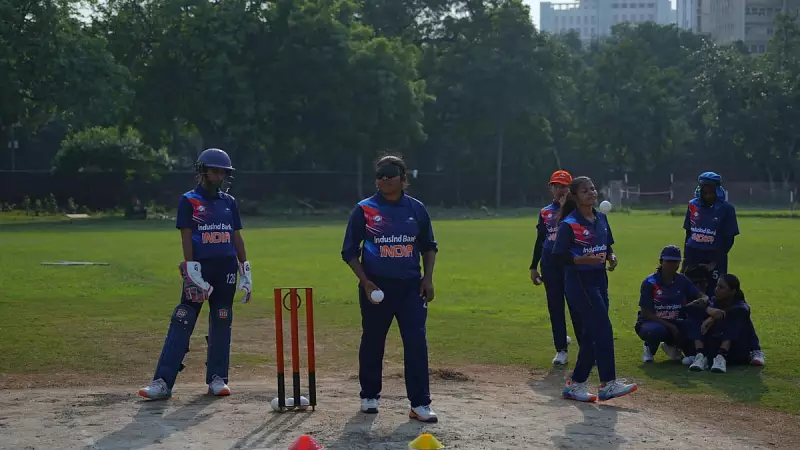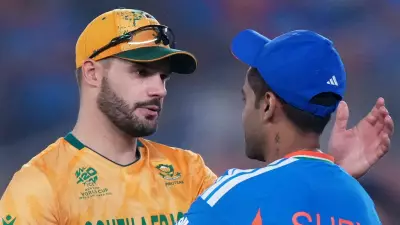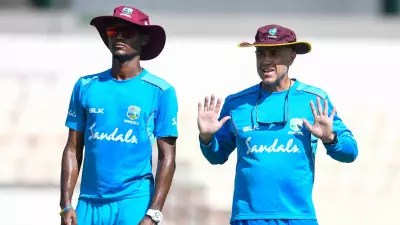
In a remarkable display of courage and determination, India's first blind women's cricket team has shattered stereotypes and proven that vision extends far beyond physical sight. This pioneering squad of visually impaired athletes has not only taken to the cricket field but has emerged victorious, claiming the Women's T20 International Series trophy against Nepal in a stunning debut performance.
The Birth of a Revolutionary Team
The journey began in 2023 when the Cricket Association for the Blind in India (CABI) made the historic decision to form the nation's first blind women's cricket team. The selection process spanned across multiple states, identifying talented athletes who shared both passion for the sport and the visual impairment that would unite them in this groundbreaking endeavor.
The team comprises women with varying degrees of visual impairment, categorized into three distinct groups. B1 players are completely blind, B2 participants can perceive light and shapes, while B3 members possess partial vision. This diversity within the team created unique challenges and opportunities for adaptation and teamwork.
Training Against All Obstacles
The path to international competition was paved with extraordinary challenges. Many team members faced significant opposition from their own families and communities when they expressed their desire to pursue cricket. Societal expectations and safety concerns nearly derailed dreams before they could take flight.
The training regimen required innovative adaptations to make cricket accessible. The ball used in matches contains ball bearings that produce audible sounds, allowing players to track its movement through hearing rather than sight. The stumps are significantly larger than in conventional cricket, and underarm bowling ensures the ball maintains contact with the ground, creating consistent auditory cues.
Fielding positions and running between wickets demanded exceptional communication and trust among teammates. Players developed sophisticated verbal signaling systems to coordinate their movements and ensure safety during intense match situations.
Triumphant International Debut
The team's maiden international tournament in December 2023 marked a watershed moment for disability sports in India. Competing against Nepal in the Women's T20 International Series, the Indian squad demonstrated extraordinary skill and determination.
The Indian team dominated the series, winning all three matches convincingly. Their victory margins of 101 runs, 9 wickets, and 44 runs showcased not just participation but absolute mastery of their adapted version of the sport. This clean sweep against Nepal announced India's arrival as a force to be reckoned with in blind women's cricket.
Beyond the Boundary: Social Impact
The significance of this achievement extends far beyond the cricket field. Each team member has become a symbol of empowerment for visually impaired women across India. Their success challenges deep-seated societal perceptions about disability and gender capabilities.
Several players have overcome tremendous personal adversity to reach this platform. Their stories include battling family disapproval, navigating inaccessible infrastructure, and confronting the stigma associated with both visual impairment and women in sports. Their triumph represents a victory for every Indian woman with disabilities who dreams of pursuing athletics.
The team's accomplishments have already begun influencing policy discussions about inclusive sports infrastructure and funding for disability athletics in India. Their visibility has brought much-needed attention to the capabilities of visually impaired athletes and the importance of creating equal opportunities in sports.
The Road Ahead
With their historic victory secured, India's blind women's cricket team now looks toward future international competitions and the eventual establishment of a Blind Women's Cricket World Cup. The players continue to train intensively, refining their skills and developing new strategies.
The team receives crucial support from the Cricket Association for the Blind in India, which provides coaching, equipment, and organizational structure. However, greater corporate sponsorship and public recognition remain essential for the sustained growth of blind women's cricket.
As these pioneering athletes prepare for their next challenges, they carry with them the hopes of countless visually impaired girls who now see new possibilities for their own futures. Their story serves as powerful testament to human resilience and the transformative power of sports.
The emergence of India's blind women's cricket team represents more than just athletic achievement—it signifies a fundamental shift in how society perceives disability and gender. These women have not only learned to play cricket without sight; they have taught the nation to see ability where others saw limitation.






